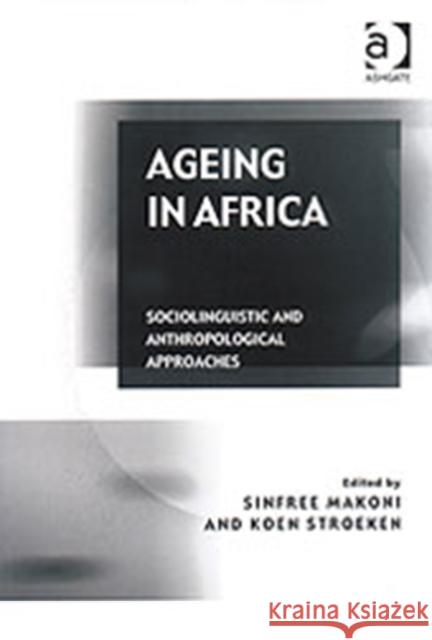Ageing in Africa: Sociolinguistic and Anthropological Approaches » książka
Ageing in Africa: Sociolinguistic and Anthropological Approaches
ISBN-13: 9780754630043 / Angielski / Twarda / 2002 / 306 str.
African gerontology has expanded dramatically as a discipline with population ageing and its consequences for societies and for individual experiences of ageing becoming prominent issues all over the continent. This volume therefore brings together some of the most prolific and skilful researchers working on ageing in Africa today. The book is based on sociolinguistic and anthropological research conducted in different regions of Southern Africa, West and East Africa, and in different types of communities, rural, urban and nomadic. Hence the book is able to adopt a pan-African slant to issues about ageing. The data and their interpretation are characterized by the richness, typicity and authenticity of both narratives and ethnographical fieldwork. Because the authors aim to present insider views and experiences of ageing in Africa from these diverse contexts, the book is able to distil common and variable aspects of ageing in Africa. These permit a formulation of critical models of ageing which are sensitive to the elderly persona s experience and to the dynamics of the historical contexts in which are sensitive to the elderly persona s experience and to the dynamics of the historical contexts in which elderly persons have lived. Critical models of ageing appear to shed a new light on the social change that affects all of us today. (e.g. post-apartheid, post-colonialism). The volume includes an introduction to the study of ageing, which proposes a conceptual apparatus that is transdisciplinary and cross-cultural. It also includes a concluding chapter sketching future directions of research and policy. The volume is divided into three sections: (1) Narratives and the construction of elderliness; (2) Cross-cultural perspectives on ageing and seniority; and (3) Crises and strategies of elderhood. The contributions employ a number of methodological approaches, ranging from discursive and literary analyses, to anthropological studies. The chapters in the first section discuss the (intergenerational) construction of elderliness in its traditional complexity prior to modernizing reductions. They foreground the cross-cultural nature of ageing such as it is experienced and ritually enacted among the Sukuma in Tanzania, the Himba in Namibia and the Dagara in Ghana. Chapters in the third section explore the tension between localizing and globalizing tendencies, when a modernitiesa in Kenya, Ghana and South Africa problematize tradition and age. Those chapters of the final section illustrate amongst others how elderly persons develop strategies or a social techniquesa, such as remembrance, pretence and complaint discourse, to contest reductions engendered by Africaa s emerging new world orders."











